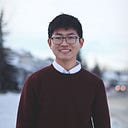Member-only story

Though Ai’s work was determinedly not autobiographical, its concern with disenfranchised people was informed, she often said, by her own fractional heritage. Many poems could be read as biting dissertations “On Being 1/2 Japanese, 1/8 Choctaw, 1/4 Black, and 1/16 Irish,” as the title of a 1978 essay she wrote in Ms. magazine put it. (The proportions are telling, too, for not quite adding up to a complete person.)
I love this quote from the NYT’s obituary about the American poet Ai Ogawa for its sharp suggestion that her poetry was driven by this desire to find completeness in words when she couldn’t in identity or other people.
For many, Ai needs an introduction. Born Florence Anthony, she changed her name to Ai Ogawa after she learned that her biological father was a Japanese man that her mother had an affair with after meeting at a streetcar stop. She graduated the University of California at Irvine’s MFA program in 1971 and won the National Book Award for her poetry collection Vice (1999).
“Ai” (愛) is the word for “love” in Japanese.
For me, a central concern in her poetry is what happens to a person’s voice when it becomes independent, either voluntarily or forcibly by institutions, from identity?
